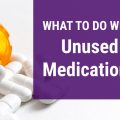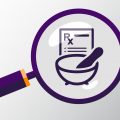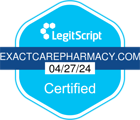
Fact vs Fiction: Medication Myths
Medication is complex. It can help improve your health and make you feel better, but it also has the potential to be dangerous if not managed properly. That’s why it’s important to turn to the experts—your doctors and pharmacist—for information about medication. Many people have opinions about medication, but only your health care team is qualified to give you advice. They have the education necessary to understand medicine. They also have information about your health that qualifies them to make decisions that are in your best interest.
Common Medication Myths to Ignore
MYTH: Missing a medication dose or taking it at the wrong time isn’t a big deal.
It does matter when and how you take your medication. Your doctor and pharmacist provide you with specific instructions to ensure it works safely and properly. When you don’t follow their instructions, you are putting your health at risk. However, accidents do happen. You may miss a dose due to a reason outside of your control or you may simply forget. How your body reacts in this situation will depend on which medication you missed. Your condition could worsen and you could get sick. You might feel fine. You can’t be sure what will happen. If you realize you’ve missed a dose, look at your medication instructions. They may tell you what to do. If they don’t, contact your doctor or pharmacist right away. They can get you back on track. If you find it hard to remember to take your medications, your pharmacist can help with that, too. They can recommend ways to make it easier.
MYTH: Medications, vitamins and supplements that don’t require a prescription are always safe.
Don’t assume that anything you can buy without a prescription is safe for you to take. The truth is there can be risk involved with taking any medication, vitamin or supplement. This is especially true if you take multiple prescription medications. Because vitamins and supplements can have strong effects on the body, they can interact with the medicine you are already taking. Interactions can make your medicine too weak or too strong, or they can cause unwanted side effects. The Food and Drug Administration is the federal agency that regulates drugs and supplements in the United States. According to their website, problems are most likely to occur if you:
- Combine supplements
- Mix medicines and supplements
- Take too much of some supplements
- Take supplements instead of medications
Your doctor or pharmacist should be aware of all the medications, vitamins and supplements you are taking. And your pharmacist is a medication expert who can help identify these types of risks for you. Always talk to them before taking anything new.
MYTH: You can take more or less medication than recommended, depending on how you are feeling.
It’s never a good idea to make changes to how much medication you take on your own. You should always talk to your doctor or pharmacist first. It’s never a good idea to:
- Stop medication because you feel great and your symptoms are gone
- Stop medication because you don’t like the side effects
- Take more medication than instructed because you want it to work faster
- Take less medication because it’s expensive and you want it to last longer
Medication is prescribed to you for a health purpose. The amount you take has been calculated to work to your benefit. If you are unhappy with your medication for any reason, your doctor or pharmacist can help find a solution for you.
MYTH: It doesn’t matter where you get your medication, because all pharmacies are the same.
Not all pharmacies are created equal. Some pharmacies focus on convenience. Others are more customer service oriented and provide extra support. Unfortunately, some pharmacies are scams and should be avoided altogether. It’s important to use a pharmacy you can trust to meet your specific needs. Here are some articles that can help you do that:
- Finding a Credible Pharmacy
- Tips for Choosing a Pharmacy if You Take Multiple Prescriptions
- Why Using One Pharmacy is Important
At ExactCare, we specialize in helping people who take multiple daily prescription medications. Learn more about what we do and how we can help. Or call 1-844-287-1609 to speak to a pharmacy representative.







